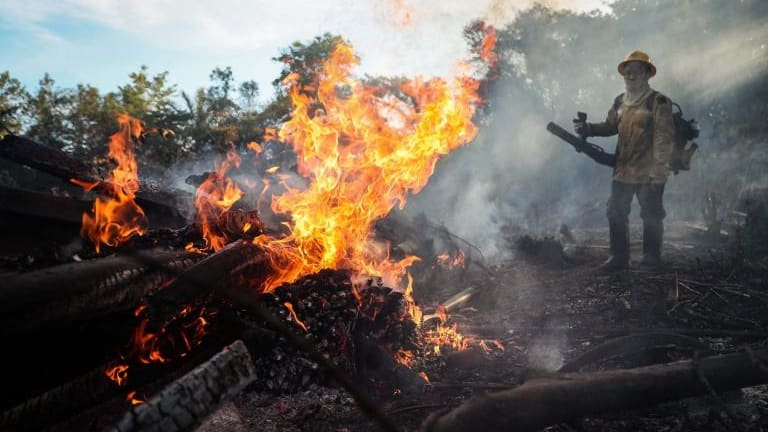
The amount of land in the Amazon where deforestation has taken place has increased dramatically under the presidency of Brazil’s Jair Bolsonaro – amid concerns his environmental stance has emboldened those keen to turn one of the most important regions in the world for biodiversity into agricultural land.
Mr Bolsonaro has long denied responsibility for attempts to cut back the Amazon by illegal loggers and ranchers, who are believed to be at least in part to blame for the mass wildfires that swept the rainforest in the summer of 2019, which immolated 2.24 million acres of land once teeming with life.
However, data released by Brazil’s National Institute for Space Research (INPE) that covers the entire length of his tenure in office has shown the organisation marked 9,166 square kilometres of rainforest with deforestation warnings across 2019, compared to 4,946 square kilometres in 2018.
While the warnings – logged through the agency’s DETER system – are not used as the official way of measuring deforestation in the country, they offer mounting evidence against Mr Bolsonaro alongside data released in November by the same agency which showed areas of complete deforestation had risen 30% from 2018 to 9,762 square km.
And Tasso Azevedo, coordinator of group MapBiomas that monitors the rate of forest destruction, has warned 2020 could be even worse for the rainforest if urgent measures are not introduced in the run up to this year’s dry season.
"It would be expected that it will be worse than last year unless something really big happens in the next two or three months to avoid the high season of deforestation that starts in May" Mr Azevedo said.
The worlds largest rainforest, largely contained within Brazil's borders, stands as a bulwark against global warming because of the vast amounts of heat-trapping carbon dioxide it soaks up from the atmosphere.
It also provides Brazil with hydropower, and its abundant rain provides irrigation-free agriculture.
In November, a study published in Scientific Reorts found fires and the resulting soot from the rainforest was directly responsible for melting glaciers in the Andes more than 1,000 miles away.
Dr Newton de Magalhaes Neto, the study’s lead author, explained there is “the potential to increase glacier melting as snow that is darkened by black carbon or dust particles [that] reflect less light”.
A separate study by the Federal University of Rio Grande do Sul in 2016 found some areas covered by glaciers in the Andes have nearly halved since the 1970s.